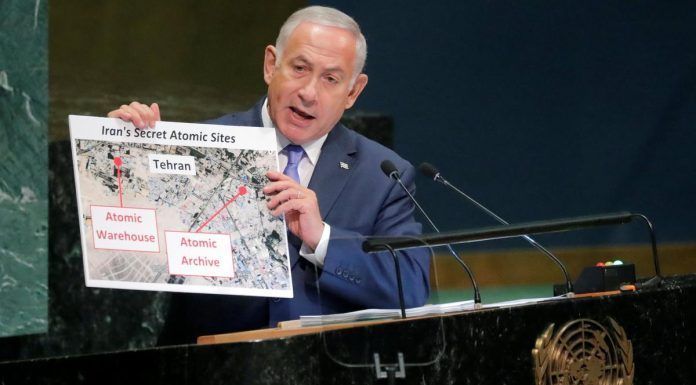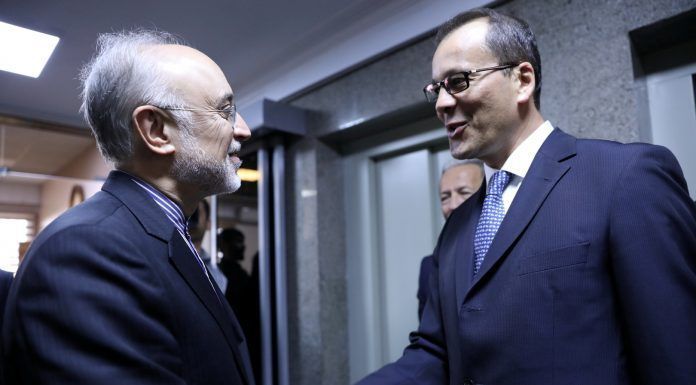By Francois Murphy
VIENNA, Nov 21 (Reuters) – The U.N. nuclear watchdog’s top inspector will travel to Tehran next week to press Iran to finally explain the origin of uranium traces found at an undeclared site, the agency’s acting chief said on Thursday.
Reuters first reported in September that the International Atomic Energy Agency found the uranium traces at the site that Israeli Prime Minister Benjamin Netanyahu drew attention to in a speech last year, calling it a “secret atomic warehouse”. Tehran has said the site is a carpet-cleaning facility.
Two weeks ago the IAEA confirmed to member states that environmental samples taken at a still unspecified site had shown traces of uranium that was processed but not enriched.
“We have continued our interactions with Iran since then, but have not received any additional information and the matter remains unresolved,” acting IAEA Director General Cornel Feruta told a quarterly meeting of his agency’s 35-nation Board of Governors in Vienna.
Feruta told Iran in September that “time is of the essence” in clearing up the origin of the traces. The IAEA has found that the explanations given by Iran so far have not held water.
“A meeting between the agency and Iran is scheduled next week in Tehran to discuss it further,” Feruta said. “It is essential that Iran works with the agency to resolve this matter promptly.”
He later told a news conference that Massimo Aparo, head of the IAEA’s Department of Safeguards, which carries out inspections, would lead the agency’s delegation. The IAEA leadership is in transition as the incoming director general, Argentina’s Rafael Grossi, is due to take office on Dec. 3.
“That Iran has failed to sufficiently address this issue for close to a year is wholly unacceptable,” the United States, which like Israel opposes Iran‘s 2015 nuclear deal with major powers, said in its statement to the board. Diplomats say the IAEA inspected the site in February.
“That there are possible undeclared nuclear materials present and activities ongoing in Iran still today is profoundly concerning,” the U.S. statement said.
The ambassador to the IAEA of Tehran’s ally Russia this month described it as “aspects of nuclear activities in Iran about 20-30 years ago”, adding that the issue “doesn’t constitute any proliferation concern”.
Iran said in its board statement that “there is an ongoing cooperation on this issue”, adding: “Talking about any artificial time frame and any effort to aggrandize this routine issue would be aimed at distorting the facts for political aims and will have negative consequences on the cooperation.”
U.S. intelligence agencies and the IAEA believe Iran had a nuclear weapons programme that it ended long ago. The 2015 deal involved drawing a line under that past, though Tehran still denies ever having pursued nuclear weapons.
“Time continues to be of the essence,” Feruta said.
(Reporting by Francois Murphy Editing by Mark Heinrich



